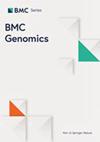Deconvolution from bulk gene expression by leveraging sample-wise and gene-wise similarities and single-cell RNA-Seq data
IF 3.5
2区 生物学
Q2 BIOTECHNOLOGY & APPLIED MICROBIOLOGY
引用次数: 0
Abstract
The widely adopted bulk RNA-seq measures the gene expression average of cells, masking cell type heterogeneity, which confounds downstream analyses. Therefore, identifying the cellular composition and cell type-specific gene expression profiles (GEPs) facilitates the study of the underlying mechanisms of various biological processes. Although single-cell RNA-seq focuses on cell type heterogeneity in gene expression, it requires specialized and expensive resources and currently is not practical for a large number of samples or a routine clinical setting. Recently, computational deconvolution methodologies have been developed, while many of them only estimate cell type composition or cell type-specific GEPs by requiring the other as input. The development of more accurate deconvolution methods to infer cell type abundance and cell type-specific GEPs is still essential. We propose a new deconvolution algorithm, DSSC, which infers cell type-specific gene expression and cell type proportions of heterogeneous samples simultaneously by leveraging gene-gene and sample-sample similarities in bulk expression and single-cell RNA-seq data. Through comparisons with the other existing methods, we demonstrate that DSSC is effective in inferring both cell type proportions and cell type-specific GEPs across simulated pseudo-bulk data (including intra-dataset and inter-dataset simulations) and experimental bulk data (including mixture data and real experimental data). DSSC shows robustness to the change of marker gene number and sample size and also has cost and time efficiencies. DSSC provides a practical and promising alternative to the experimental techniques to characterize cellular composition and heterogeneity in the gene expression of heterogeneous samples.求助全文
约1分钟内获得全文
求助全文
来源期刊

BMC Genomics
生物-生物工程与应用微生物
CiteScore
7.40
自引率
4.50%
发文量
769
审稿时长
6.4 months
期刊介绍:
BMC Genomics is an open access, peer-reviewed journal that considers articles on all aspects of genome-scale analysis, functional genomics, and proteomics.
BMC Genomics is part of the BMC series which publishes subject-specific journals focused on the needs of individual research communities across all areas of biology and medicine. We offer an efficient, fair and friendly peer review service, and are committed to publishing all sound science, provided that there is some advance in knowledge presented by the work.
文献相关原料
| 公司名称 | 产品信息 | 采购帮参考价格 |
|---|
 求助内容:
求助内容: 应助结果提醒方式:
应助结果提醒方式:


